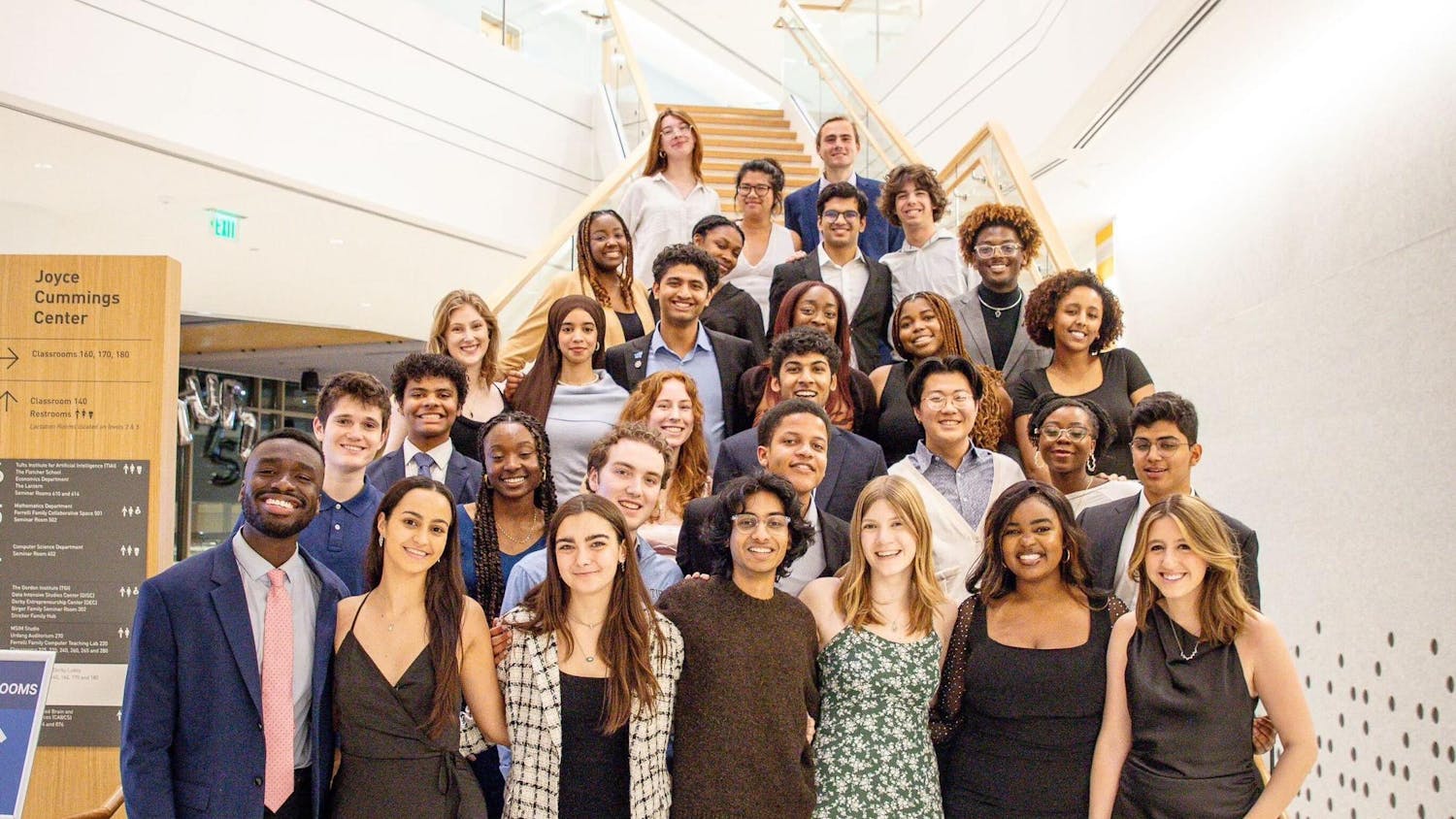Mourners poured into the Granoff Family Hillel Center Monday to remember the lives of the 11 Jews murdered during Saturday’s mass shooting at the Tree of Life – Or L’Simcha Congregation in Pittsburgh, Pa.
The attack was the deadliest single targeted act of anti-Semitism ever committed on American soil, according to the Anti-Defamation League, and of a violent nature that American Jews have grown accustomed to hearing out of France or Germany — but not the modern United States. Its aftermath sent pangs of fear, shock and uncertainty through the American Jewish community, and Tufts was no exception.
Rabbi Dr. Naftali Brawer, Tufts’ Jewish Chaplain, led the late-afternoon ceremony. He opened with a reflection upon life, which, like the yahrzeit candles he invited students to light for the victims, he said can be whisked away in a single moment.
“When we light a candle in memory of those who passed on, it’s a meditation on the fragility and the beauty of human life,” Brawer said. “In some ways, it invites us to mourn the life that has been extinguished and to cherish the life all around us.”
Brawer explained that he learned about the attack after sundown Saturday, once Shabbat, a day of rest on which observant Jews abstain from electronics, had concluded. He and the other members of the Tufts chaplaincy quickly began to coordinate a response.
“We wanted to do something that would honor the memory of those who were murdered and bring comfort to the community,” Brawer said.
Part of that effort came through a Sunday night vigil hosted by the Chaplaincy in the Goddard Chapel, according to University Chaplain Reverend Greg McGonigle.
Brawer and Rabbi Tzvi Backman, director of the Rohr Chabad House serving Tufts, organized Monday’s memorial service. Backman grew up in Squirrel Hill, the neighborhood where the Tree of Life – Or L’Simcha Congregation is located. He retains close ties to the area through his mother, who still lives there, and his daughter, who attends a nearby yeshiva high school.
“Her high school building is just a few blocks from where this all happened,” Backman said. “It struck very close to home.”
Backman also described the emotional toll that Saturday’s shooting had on his mother.
“I spoke to my mother yesterday and she said to me she’s getting calls — people wanting to know if she’s okay,” Backman said. “She said, ‘Well, I’m alive, but I’m not okay.’”
Backman said that Pittsburgh is a close-knit community where neighbors look out for one another and where Jews can go to synagogue and pray without fear of persecution or retaliation. He lamented the loss of that sense of security.
“All of the sudden, a senseless act of hatred. All of the sudden, when we walk out of our homes and we go to a space that is safe and comforting and uplifting — and now we think twice,” Backman said.
He offered tradition — from the hanging of a mezuzah on a doorpost to the lighting of a candle on Friday night, Shabbat — as a means for Jews to remain resilient.
A sense of deep solidarity also flowed through the service. Rabbi Jordan Braunig, director of Tufts Hillel’s Initiative for Innovative Community Building, told the crowd that all of the university’s religious community stands behind those of Jewish faith.
“When parents come in with a high schooler and [ask] about anti-Semitism on campus, I’d like to show them this picture,” Braunig said, motioning to the standing-room-only crowd. “I’d like to show them the messages that I’ve received from Muslim students, from Christian students, from Buddhist students, humanist students — this is what it is to feel like someone has your back.”
University President Anthony Monaco attended the ceremony. He expressed the university’s solidarity in an email statement to the Daily, in which he called upon Tufts to fight back against identity-based hatred.
“It’s heartbreaking to see families and communities torn apart yet again by the hatred and violence of a mass shooting,” Monaco wrote. “We stand with our Jewish community at Tufts, and we stand against the anti-Semitic hate that fueled this tragedy. I urge all members of the Tufts community to remain committed to working toward positive change that prevents further incidents of violence targeting any identity group.”
Reverend Greg McGonigle told the Daily in an email that the Chaplaincy, which coordinated the Sunday vigil, is fearful of the resurgence of anti-Semitism in the United States.
“We were devastated to hear of this unspeakable attack against the Jewish community,” McGonigle wrote. “It is the latest in a series of anti-Semitic rhetoric and actions in this country and the latest deadly hate crime targeting a house of worship—a place of holiness, safety, refuge, and community.”
The service concluded with a reading of the names of the dead by Rabbinic Fellow Ilana Zietman.
Joyce Fienberg, 75
Richard Gottfried, 65
Rose Mallinger, 97
Jerry Rabinowitz, 66
Cecil Rosenthal, 59
David Rosenthal, 54
Bernice Simon, 84
Sylvan Simon, 86
Daniel Stein, 71
Melvin Wax, 88
Irving Younger, 69
First-year student Sophia Friedman then led attendees in a recitation of Kaddish.
More from The Tufts Daily





